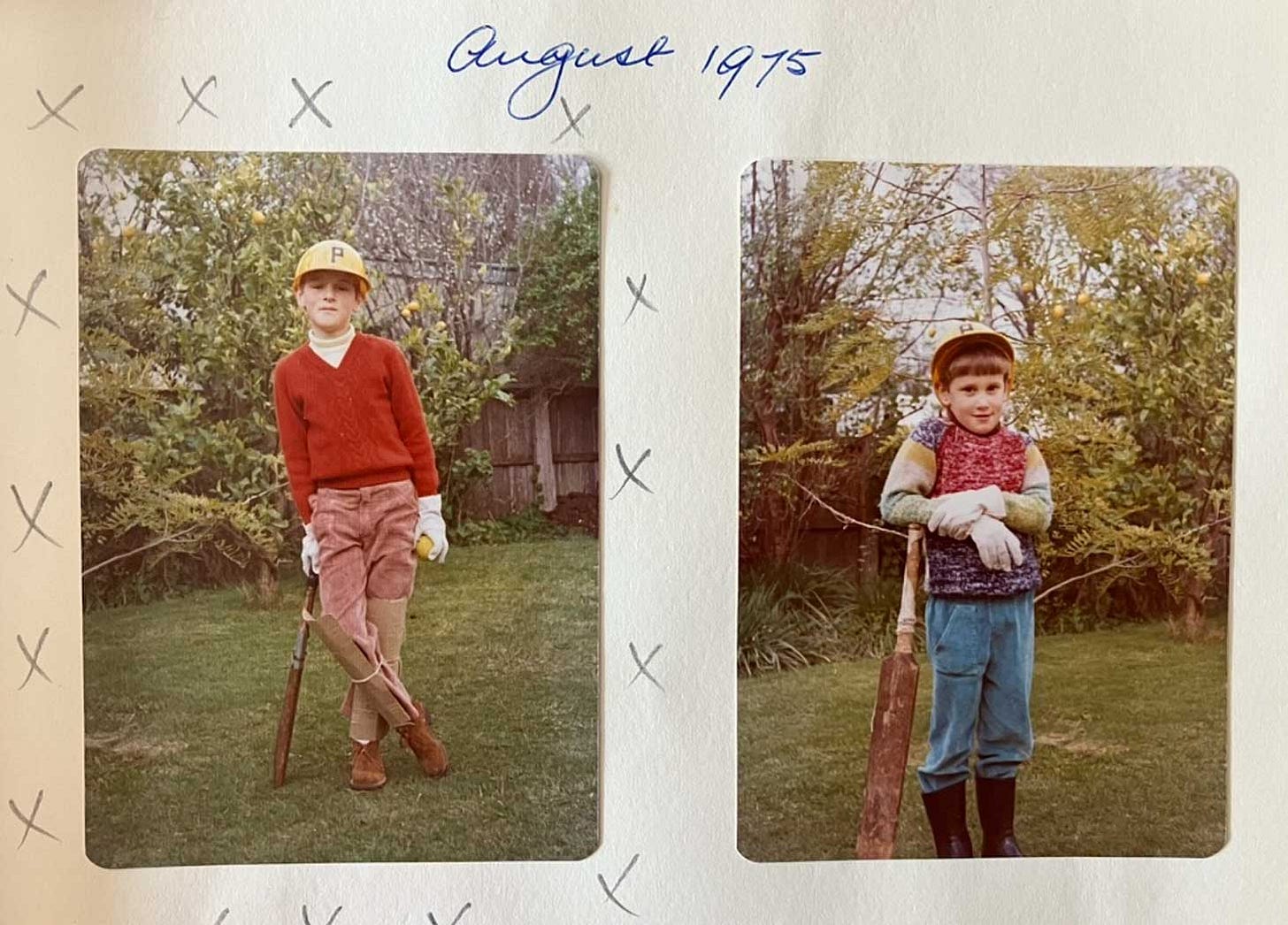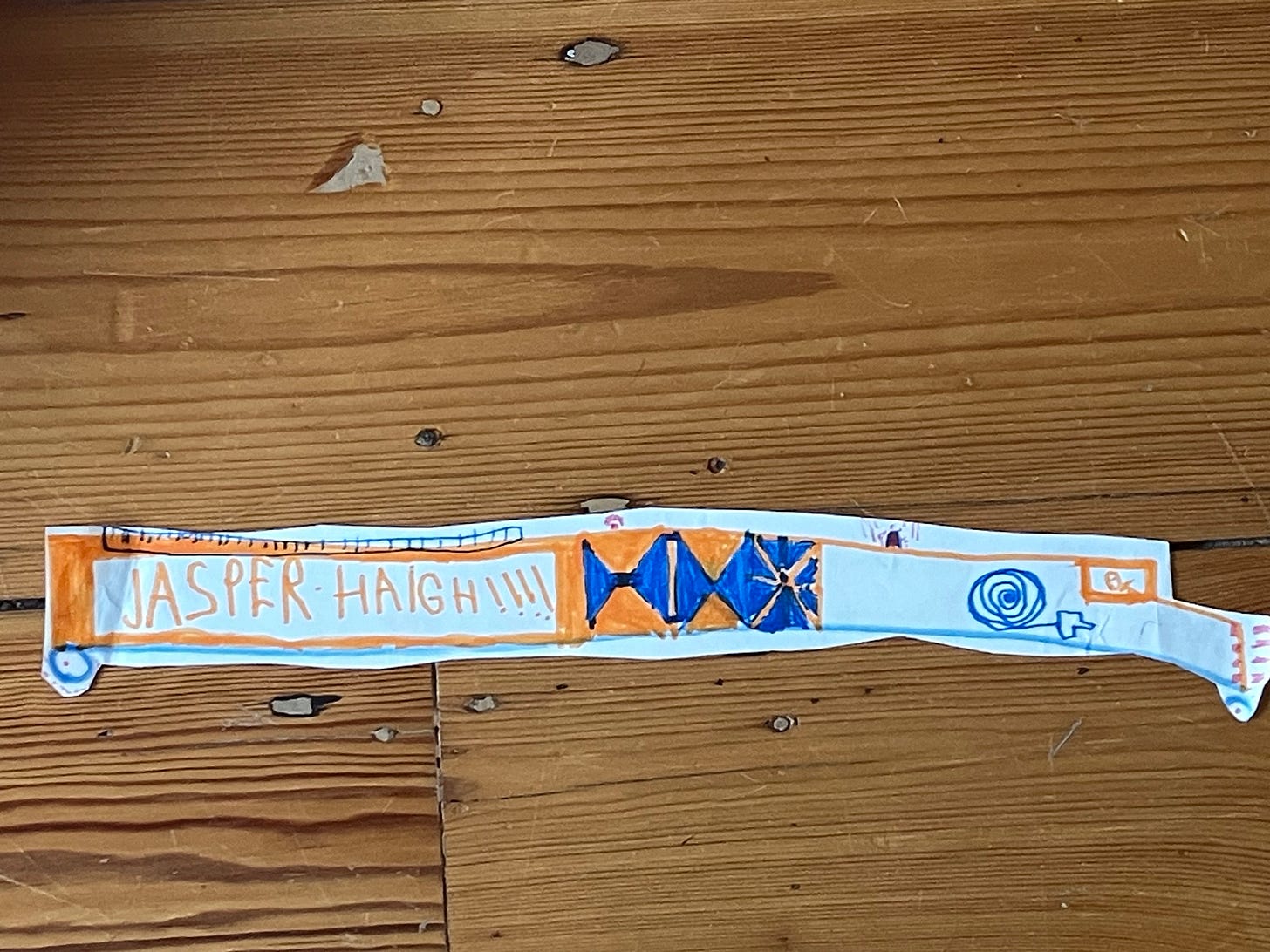THE LITTLE STORY OF A SHORT BOOK
GH on My Brother Jaz
When I was a cadet journalist forty years ago, I remember being interested in a formulation of my various news desk bosses. You would present after returning from this task and that, try to explain what you had found, and how this might be presented. The news editor or chief of staff would listen, frown, nod, and often come back with: ‘OK, write what’s there.’
Write what’s there? Well, what else would you write about? You could hardly write about what wasn’t there, or even what was far away. So what did it mean, this injunction? Perhaps it meant nothing; and yet it did seem to mean something, because it was repeated with quiet insistence. And, in time, I began to see its value. It was an insistence to write what you had found, seen and heard, and only that - not to speculate or extrapolate, and certainly not to indulge yourself. You were to stick to what had verifiably happened and been ascertainably said, and no more. And this was helpful, because it kept me coming back to what it was that I knew for sure, and forced me to examine how it was that I knew it.
I say this by way of introducing a short book I have just published, My Brother Jaz. It is being classified as a memoir - which is fine, by the way, even if I confess in the book to cordially loathing memoir, with all its self-justification and self-excusing, as a genre. I think of it as, like everything I do, journalism. I was written from what was there. Which, as Orwell reminded us in the context of political writing, can be difficult: ‘To see what is in front of one's nose needs a constant struggle.’ For me it has been exceptionally difficult - so difficult as to need the passing of thirty-seven years before I could do it.
You see, on 13 August 1987, my seventeen-year-old brother Jasper Haigh was killed in a car accident. He was my only sibling; in other words, the only person on earth who shared my exact same genetic inheritance. Not only had I never written about this, I had tried, deliberately and studiously, not even to think about it - an impossible act, because not to think about something, you have, of course, to think about it first. This urge also competed with the conviction that I must not forget, in order to keep a tiny glimmer of Jaz, however flickeringly, alive.
All this requires the acutest self-mastery. You bank on it getting easier. Maybe it does for some people. For me it kept getting harder. I am middle-aged. My brother, had he lived, would be middle-aged too. That four year gap in our ages, so formidable in our childhoods, would have shrunk to nothing. So that sense grew of being cheated. He had been cheated. I had been cheated. My mother, especially, had been cheated. The Haigh family was never large. Our father left when I was six and Jaz two. My mother and I have passed a lot of lonely Christmases together.
In the last decade maybe, the not thinking about it has meant, really, not thinking about anything except what I have been doing in the instant. Work, basically. I’ve never been ambitious or avaricious. I don’t aspire to this job or that eminence. I am furiously impatient with bullshit and do not care who knows it. My existence has been about training attention on subjects and, yes, writing what was there. We over diagnose workaholism to the exclusion, I think, of what I might call I ‘workaholia’ - a form of melancholia managed by the application of constant toil. Certainly I suspected a species of this in my own make-up. I had the oeuvre to show for it. I did not want help. I have never wanted help. But was I ever, I wondered, in those 3am contemplations of the bedroom ceiling, going to do anything about the stuntedness of my life?
Except it was not obvious what to do. Normally when confronted by a complex subject, I will start by reading intensely. But nothing stood out as truly helpful. Parents have written about the loss of children; sisterly relations have a dense literature. But brothers? This kinship seemed superficially documented, seldom spoken of. That was until, browsing in a WH Smith on the 2019 Ashes tour, I encountered Richard Beard’s The Day That Went Missing, about the drowning of his younger brother on a 1978 family holiday. I knew Richard by his larkish sports writing; he was also a novelist. I bought his book and read it in a cold sweat, because it also described the silences that envelope what it is too traumatic to address; I had a day that had gone missing too.
But I knew it; I knew it all, chapter and verse. I have a poor personal memory because, I fear, I am reluctant to let personal things become a priority. But of 13 August 1987, I had a hectic, giddying, minute-by-minute recall. Maybe it was also the day I stopped remembering, through, as it were, basically running out of storage, subsequently using work to stop any emerging gaps in the remaining space. Anyway, I’ve not met Richard. We’ve both turned out for the Authors XI, and I had secretly hoped our games might overlap but they never did - maybe one day. I owe him a lot. Because he did not flinch.
The second explicit provocation for My Brother Jaz was obtaining the inquest into Jaz’s death. I have always been fascinated by the inquest as a literary and historical genre. Here I am delivering a speech about it, ‘The Wife’s Gone, The Kids are Dead’, in 2021. I decided early the following year to spend a couple of months reading as many inquests as I could, just to see what I could learn - and I did learn a lot. But such are the games we play with ourselves. I understand now, as I dimly understood then but was reluctant to admit, that I was, again, transmuting emotional into intellectual energy. Because there was really only one inquest I had to read - assuming it existed, which I didn’t actually know. The application process to the Coroner’s Court took many months; it was many months again before I could read it properly, and only after a third provocation.
This was the failure of yet another relationship, continuing the chapter of accidents that is my personal life. It ended as quickly as it started, after five years; I addressed this, as is my wont, with work. But this old analgesic, I could tell, was diminishing in its efficacy. So I then tried to stop - to down tools, to step away. But you don’t abandon a lifetime’s habits lightly. I felt bad. I felt angry. A fear had always nagged. What if thinking and writing about what was eating me made things worse? I had always told myself that this was out of solicitude for my mother, now eighty-two, and as resilient, valiant and devoid of self-pity as ever; if I’m honest, I was just as concerned for the maintenance of my hard-won but brittle equilibrium.
Then, as I narrate in My Brother Jaz, one night in Sydney in January I knew the jig was up because things could not get worse. I was on the verandah of the cottage where I was cat-sitting. It was 12.30am. I opened my Macbook Air, and started disgorging everything I could remember about 13 August 1987, comparing it to the 41-page pdf of ‘Jasper Haigh Reports’ on my desktop. I wrote for most of the next seventy-two hours, stopping every now and again to go for a walk, brood or nap. I had neither plan nor theme and only one idea, which was that, if I wrote fast enough, I would get to a point where it became impossible not to finish. The moments in the text where I wonder aloud what I am doing and why are real-time transcriptions of my thinking. Nor did I did really finish what I was doing; the ‘essay’, for want of a better word, finished me, told me it was done, and I out of tiredness agreed. I asked my mother if she wanted to look at it; when she said no, I decided to publish it. Because this was the only way, really, to achieve a final separation - to let it out, to set it free. I emailed the words to Sam, my Cricket Et Al co-founder, who, recovering from his surprise at this unheralded contribution to a substack chiefly concerned with cricket, kindly posted it.
To the original ‘My Brother Jaz’ there was a strong response, for which I both remained very grateful but by which I was slightly overwhelmed; and, actually, because it was a bit more than I could handle at the time, I took the post down after a few weeks. There was also, I reflected, more to add, and I wrote a further chapter trying to fathom how Jaz’s loss had shaped my ensuing years. It slotted in readily enough, at which point the exercise felt done, and has progressed to the little book of My Brother Jaz, at whose launch you’re welcome to join us on 12 September. At the same time, I would not call it ‘revised’; it’s not even, really, read. Because this was always the point. About my journalism, I’m obsessive, pedantic, perfectionistic, and in some ways self-concealing; although the work always originates in an intimate place, I polish its surface keenly. If My Brother Jaz was to have any value, I had to abandon such practice. It had to be utterly frank, completely bare. It had to hurt. And, believe me, it did, which is also why it is so short. Because nothing have I been gladder to finish.
I am glad even to finish this piece. Because, I’m afraid, something about personal writing and public confession continues to stick in my craw. I’m not sure we wouldn’t be better off if everyone shared just a little less of their feelings, or at least gave more thought before making special claims for them; I can assure you I won’t be making a habit or a career of airing mine. I’m quite content to be a journalist, and, like I said, am sticking to the proposition that My Brother Jaz is journalism, just with me and my brother as the subject. But, of course, I’ve not only written what was ‘there’; I’ve tried to convey what is here.
My Brother Jaz Book Launch is on Thursday 12 September at 6.30pm
The event is free, but bookings are essential.







Got it from the little Brunswick bookshop and read it last night.
As someone whose job it is to cover inquests and go to far flung parts of the country to cover them, the work by the families to advocate the state to hear the parts of their loved ones story that may never have been told is a powerful thing.
Well done on the work and look forward to the launch next week
I'll be ordering this later today. I wrote something similar recently about an old loss and found, as you said to another commenter, that writing about the issue is more beneficial than thinking of it. Thoughts can be jumbled, especially if they never leave your head, but when put down on paper with nothing held back they achieve a higher level of clarity.